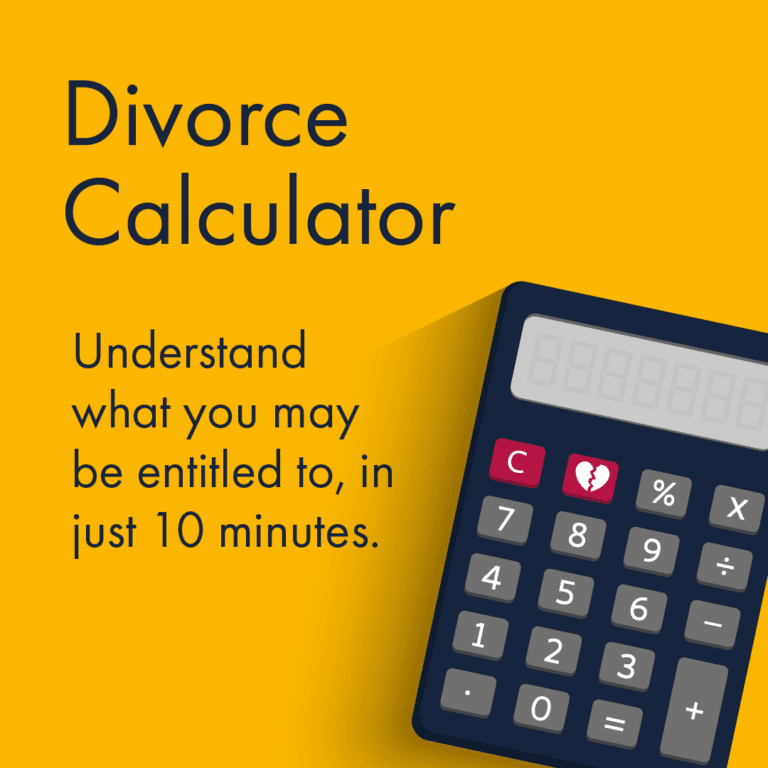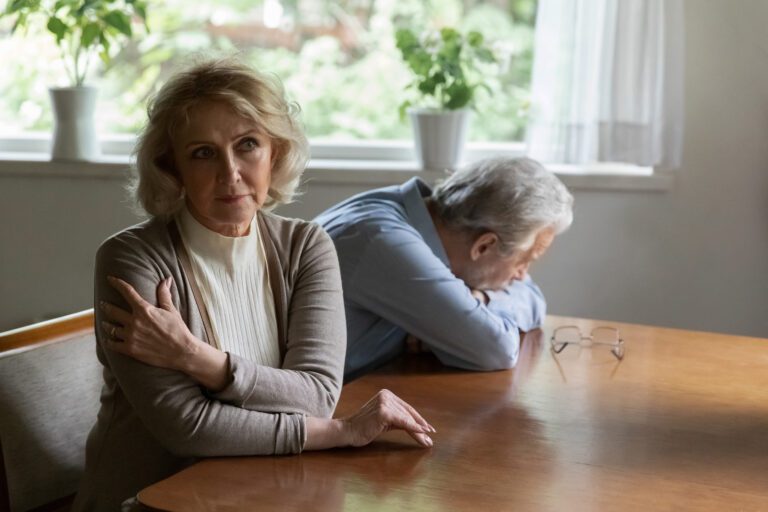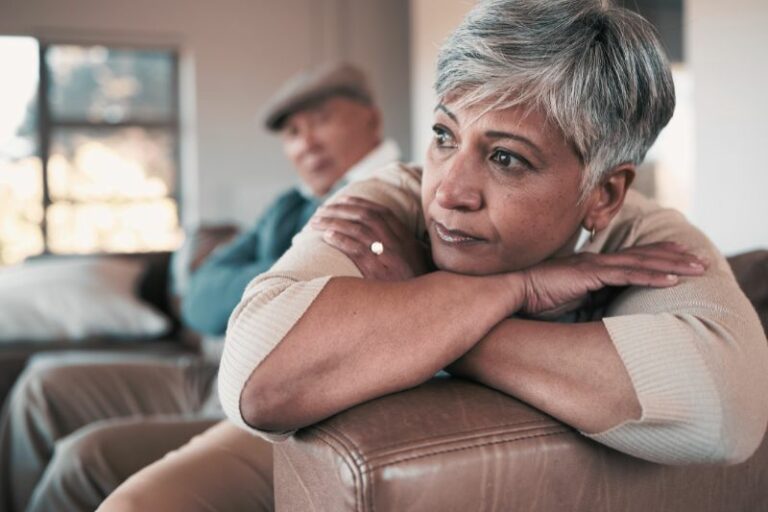-
What is the impact of overlooking the pension pot for women?
One common question is: “Can my ex-wife claim my pension years after we divorced?” Although it is possible for women to pursue a stake in their former partner’s pension in the UK, there remains a discrepancy and a resulting imbalance of wealth. This is because, overall, it’s very common for there to be a significant disparity in pension wealth between couples.
Many of us will be aware of the gender pay gap – where women are paid less than men for the same job. However, the gender pensions gap is not discussed. Yet it is equally as serious as there is a 56% difference between men and women in average pension assets at retirement age, and it falls in favour of the men.
Here’s an overview of how this looks:
- According to research carried out in 2021 by the University of Manchester, 90% of the pension wealth is held by one party – this tends to be the man in different-sex couples – in around half of couples. Fewer than 15% of couples have approximately equal pensions.
- Women, unfortunately, often lose out when it comes to pensions in divorce and often do not include them as part of discussions. Scottish Widows statistics show that 60% of divorced women did not talk about pensions in their divorce, with almost 28% of these not knowing that they should be included.
- Research that the team here at Stowe carried out also shows that if pensions are not part of divorce conversations, it costs women an average of £79k they reach retirement.
Those couples undertaking a DIY divorce are most likely to be at risk. This is because it is unlikely they will consider the full extent of the value of their individual pensions and their mid-to-long-term needs.
Only 12% of financial orders on divorce contain a Pension Sharing Order. It is far too common for parties to ignore or forego their claims against their ex-spouse’s pension in favour of retaining the family home. This puts them at risk of swapping long-term income security for short-term stability.
Furthermore, women have a longer life expectancy than men. This means that they need a more substantial capital fund at retirement to produce the same annual income over their lifetime post-retirement.
 Use the calculator
Use the calculator
How much of my pension will be taken into account by the court?
The total value of the pensions that each party has built up is considered. This means all your pensions, not just the ones that each of you held before you were married or in a civil partnership.
In some circumstances, it may be possible to adjust the financial settlement to exclude pensions that were accumulated outside the duration of the marriage (including the period you spent living together, provided there was no break, and it led seamlessly into marriage or a civil partnership).

What are the options?
Although it may be possible to exclude pensions in the final financial settlement, they should always be part of financial disclosure. This happens early in divorce proceedings and is a full and frank breakdown of all the financial assets owned by each party. The disclosure will reveal any disparity between your pension assets, which can then be discussed in negotiations.
When it comes to divorce and pensions in the UK, what can be involved in financial settlements includes:
- Personal pension schemes (including money purchase schemes, self-invested pension plans)
- Employer pension schemes
- The State Pension
While personal and occupational pension schemes can be shared, the basic State Pension is not shareable. However, the court can still factor the income that is expected to be received from the State Pension into its analysis when considering the division of assets and pension sharing on divorce.

How do you divide a pension?
When discussing pensions in divorce, there are two primary options for couples: pension sharing and pension offsetting. The capital values, projected income in retirement, and rules of the individual pension scheme will all help inform which option will work best for you.
Main options for dealing with your pensions:
Main options for dealing with your pensions:
-
Pension sharing
Pension sharing is where you get a percentage of any of your spouse/civil partner’s pensions. The share you receive will be transferred into a pension in your own name. You can either be kept as a member of the fund that is being shared or have your portion transferred into an alternative fund.
Pension sharing on divorce can only be achieved through a court order, known as the Pension Sharing Order (PSO). This order sets out how much of the pension(s) will be given to you or your ex-spouse and can only be made when your divorce or dissolution is complete through the court pronouncing a final order.
If you have a PSO, you will receive a transfer of a percentage of the pension into a new pension fund in your name. You will then be able to draw funds from that – whether as income or lump sums – in accordance with the rules of the scheme and subject to any tax payable.
PSOs mean that even if the paying spouse dies, the pension sharing will be unaffected. However, it’s important to note that on 2 January 2024, the Pensions and Lifetime Savings Association (PLSA) updated its , so you will need to understand what this means in relation to the charges applied to these orders.
-
Pension sharing and differences between pension schemes
Some schemes (such as the main public sector schemes like the NHS) require you to remain a member, while others do not permit this and require a transfer out. Other schemes will offer an option so you can choose which is best for you.
There may be better benefits available from the pension if you are allowed to remain a member of your spouse’s scheme. If the pension is transferred to you and you don’t already have your own pension, you’ll have to set one up.
-
Pension offsetting
Pension offsetting is where one of the parties will retain a greater share of another asset instead of receiving part of a pension. For example, you might get a bigger share of the family home while your ex-spouse keeps their pension. It is only possible if there are enough non-pension assets.
It is very important to recognise that it is not an easy exercise to compare the value of a pension – which is usually a future income stream – against the value of a property or immediately available money you have in the bank.
Additionally, the figures that many pension funds provide for an immediate capital value of the pension can be misleading and so advice from a lawyer and financial adviser is always required before agreeing to an offset of pensions.
If you choose this option, you should get a court order to make the agreement legal and ensure you don’t run into any issues down the line.
What if I have further questions about pensions and divorce?
Whether you choose pension sharing or pension offsetting, it is always best to get the advice of a financial adviser and expert lawyer, such as those in the team at Stowe. We are on hand to answer your questions.
Some of the most common include:
What if I have further questions about pensions and divorce?
Whether you choose pension sharing or pension offsetting, it is always best to get the advice of a financial adviser and expert lawyer, such as those in the team at Stowe. We are on hand to answer your questions.
Some of the most common include:
-
What is a pension attachment order?
A Pension Attachment Order (PAO), or earmarking, is when some of the pension is earmarked so that when it starts being paid out upon the pension-holding spouse’s retirement, a portion, or all of it, is paid to the receiving ex-spouse. This does not include State Pension benefits.
It’s important to be aware that:• The pension still belongs to the scheme member, but it will be paid to the receiving spouse as either a lump sum or regular maintenance payments in accordance with the specified percentage. Payments cannot be taken before this.
• Unlike PSOs, PAOs terminate on the death of the paying spouse. They also do not provide opportunity for a clean break, and ex-couples may need to be in contact for many years.
• There is no set date that the scheme member must start taking pension income, which means if they delay retirement or die beforehand, the receiving party is potentially left financially vulnerable. For these reasons, they are rarely used in practice.
-
Do I need a court order?
Only a court can make a Pension Sharing Order or a Pension Attachment Order following a divorce. Pension offsetting does not require a court order, but we would always recommend getting one to ensure certainty and enforceability should something go wrong.
-
How do we split our pension if we divorce after we have retired?
If you and/or your ex-partner have retired when you get divorced and your pensions are in payment, they can still be split.
However, you may be restricted in how you then deal with these pensions as it is not possible to take a lump sum from a pension that is in payment or one that has been used to purchase annuity.

What next?
It is important to seek the advice of a family lawyer. At Stowe, we have a number of lawyers who are experts in pensions and divorce and can help guide you through the process.
In some cases, the help of a financial adviser is necessary. We can put you in touch with professionals who can give you expert advice about your money and your potential future income.
Newsletter Sign Up
Sign up for advice on divorce and relationships from our lawyers, divorce coaches and relationship experts.
Privacy Policy